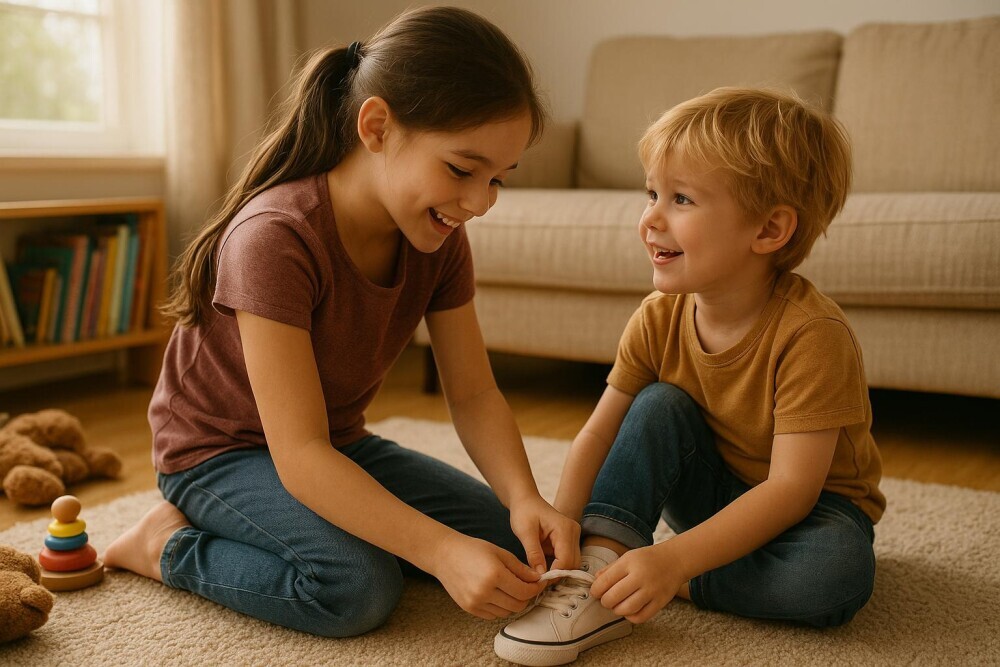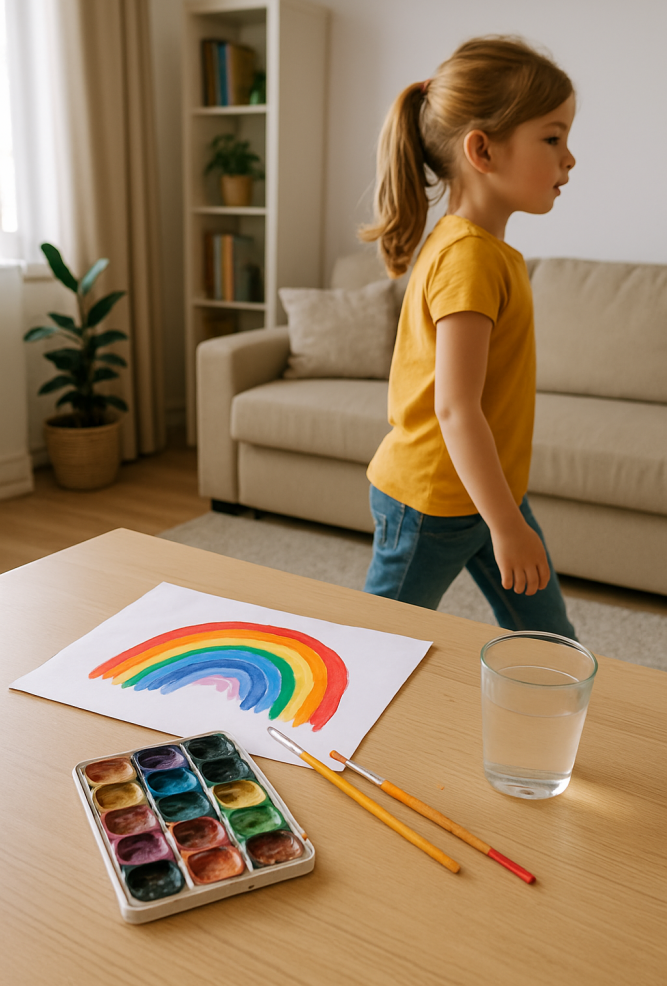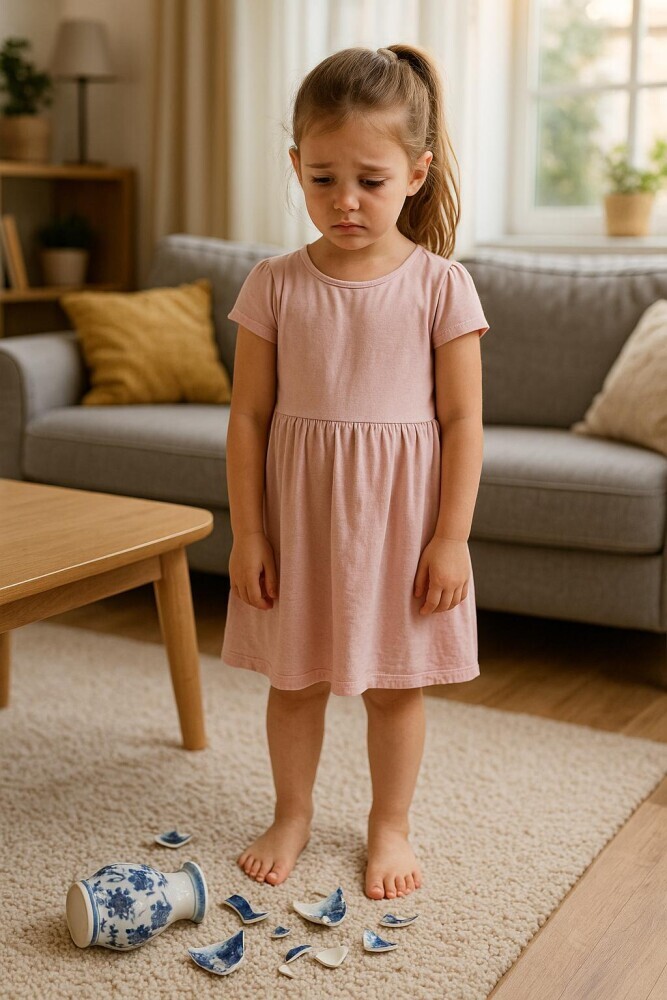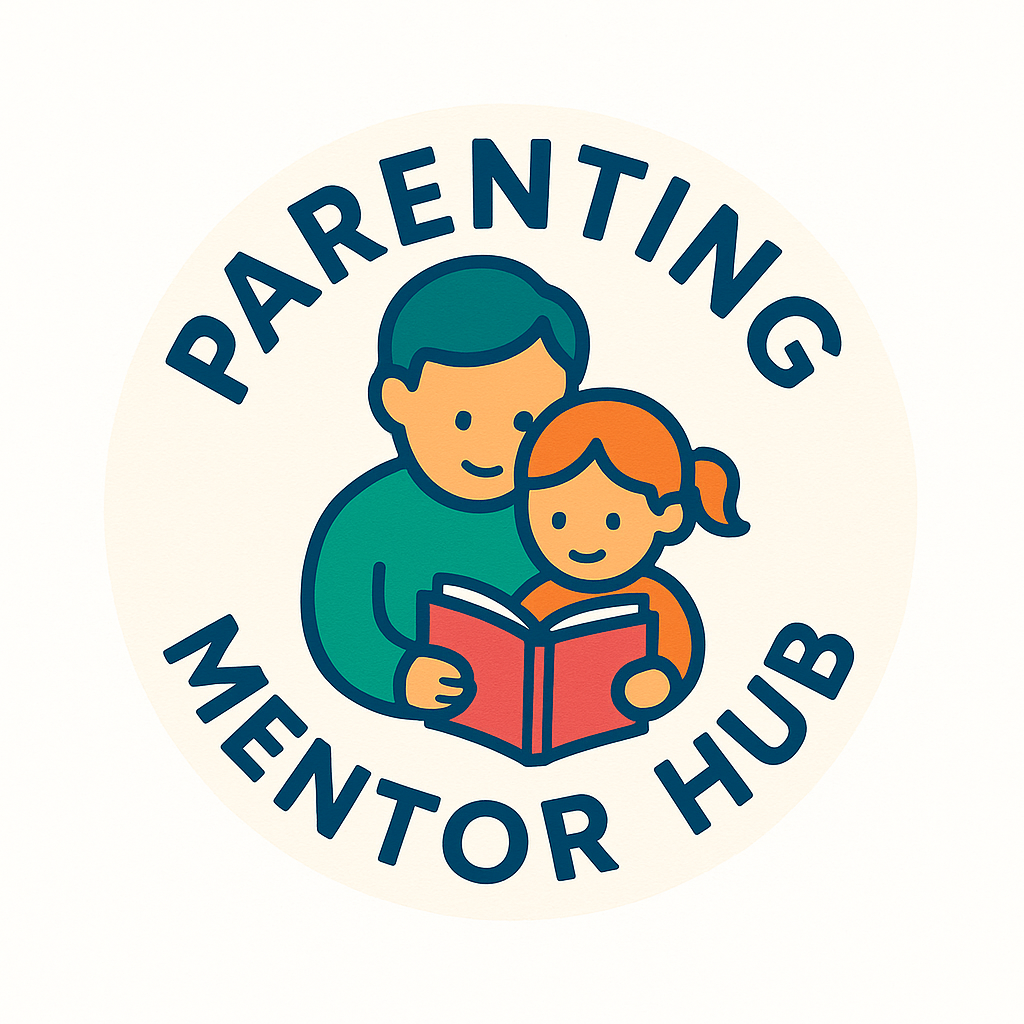
If you missed the introduction to this topic, you can find it at Teaching Children That Actions Have Consequences.
As children grow, one of the most valuable lessons they can learn is that their actions have consequences. Understanding cause and effect not only helps children develop responsibility, but also strengthens decision-making skills that will serve them throughout life.
Instead of viewing consequences as punishments, parents can use everyday situations to guide children gently towards better choices, helping them build empathy, resilience, and independence.
Here are some everyday examples that show how simple moments can teach powerful lessons.
Charlie and the Science Test
Charlie was a bright student — everyone knew it. He had a sharp mind and picked up new concepts effortlessly. But outside of school, his true passion was football. Training sessions, weekend matches, and impromptu games with friends filled most of his afternoons.
When his teacher announced a big science test, Charlie wasn’t too concerned. He figured he already understood most of the material and didn’t see the need to revise. Instead, he spent his evenings practising drills and watching football highlights.
On the morning of the test, Charlie quickly realised a problem: while he recognised some concepts, there were key details he hadn’t learned. He struggled through the questions, wishing he had spent even a little time reviewing.
When the results came back, Charlie was stunned — his grade was much lower than usual. His teacher handed him the paper and said, “You’re bright, Charlie, but even the smartest minds have to study. Talent alone isn’t enough.”
Charlie took that lesson to heart. While he never abandoned his love for football, he began balancing his time more carefully, setting aside study sessions before exams. He realised that intelligence was valuable, but it needed to be backed by effort and preparation to truly achieve his potential.
Lesson: Balancing priorities and understanding that effort is key to success.
Question: What could Charlie’s parents have done to reinforce the importance of studying?
Answer:
They could have encouraged him to set a schedule that balanced football with study time. Perhaps they assumed he didn’t need help because he was naturally bright and they didn’t realise he needed a reminder. They might not even have known there was a science test coming up.
While a simple “How was school?” often doesn’t yield much information, sharing activities with your child — like watching a football match together or driving them to an event — can create natural moments for conversation. If Charlie’s parents had known about the test, even a casual mention might have prompted him to prepare.
Lena and Responsibility
Lena was a kind-hearted but often untidy ten-year-old. One afternoon, her dad noticed two moments that stood out. First, Lena patiently helped her younger brother tie his shoelaces, showing him how to loop the laces into a neat bow. Later that same day, when a friend invited her to the park, she excitedly rushed out — leaving her art supplies scattered across the dining table, forcing her mum to tidy up before setting the table for dinner.
That evening, her dad sat down with her and said, “I saw two choices you made today — one was thoughtful and helpful, the other was careless. Both had consequences.”
He praised her for helping her brother, telling her how proud he was. Then he gently explained that because she hadn’t tidied up, her mother — who had already cooked dinner — now had to tidy up as well.
Since Lena was a naturally kind-hearted child, she felt sorry for the extra work she’d caused and promised to remember next time. The very next day, she not only tidied up after painting but also helped her brother put away his toys — because she knew her parents noticed and appreciated her good choices as well as her mistakes.
Lesson: Actions — both good and bad — have consequences, and recognising positive behaviour strengthens good habits.
Question: How could Lena’s dad have approached the lesson differently?
Answer:
Instead of addressing both actions separately, he could have encouraged Lena to reflect on how each action made others feel — how happy her brother felt when she helped him, compared to how her mother might have felt when faced with extra tidying.
Helping children connect their actions to others’ emotions deepens their understanding of responsibility.

Recognising Everyday Good Choices
Rather than waiting for grand achievements, recognising the small moments of good behaviour can have a powerful impact.
‘Catching’ a child in the act of kindness, responsibility, or effort — like sharing a toy without being asked or tidying up without prompting — helps reinforce positive habits. A simple, genuine acknowledgment, such as “I love how you helped your brother just now — that was really thoughtful,” makes children feel valued and encourages them to repeat that behaviour.
Praise should be specific and sincere, showing children that their everyday choices matter just as much as their biggest successes.
(When I attended puppy training classes, I often heard the phrase, “What gets rewarded gets repeated.” In that respect, children and puppies — and how we acknowledge their behaviour — are remarkably similar.)
Sometimes consequences aren’t just about rules or discipline — they’re about learning from mistakes that affect the things we care about. Here’s one example.
Sophie’s Lesson
Sophie loved her ballet lessons and Sophie loved to twirl. She twirled in the garden, she twirled in the kitchen, and today, she was twirling in the living room. Arms outstretched, she spun faster and faster – until her elbow clipped the edge of the coffee table.
Crash!
The delicate blue-and-white vase tumbled to the floor, shattering into pieces. Sophie froze, heart pounding as she stared at the mess.
Her mum rushed in, quickly realising what had happened. Sophie swallowed hard, guilt tightening in her chest.
“I – I didn’t mean to,” she whispered.
Her mum sighed but knelt beside her. “I know, sweetie. But this is why we have to think what we are doing and be aware of our surroundings.”
Sophie helped her mum pick up the shards, carefully placing them in a dustpan. As Sophie swept up the last of the broken pieces, a wave of sadness washed over her. She had planned to pick some daisies from the garden later that afternoon and place them in the vase. Now, there was nowhere to put them.
She sighed, realising that sometimes a mistake doesn’t just leave a mess — it also means missing out on something you were excited about. But as her mum gave her a reassuring hug, Sophie knew that she wouldn’t forget this lesson.

Emily and the Forgotten Bunny
One Saturday morning, seven-year-old Emily, full of energy and excitement, wanted to go to the park. Her mother, Anna, agreed — but reminded her to clean up her toys first. Too eager to leave, Emily ignored the request and ran to get her shoes.
When they arrived at the park, Emily rushed to the swings — and immediately realised she had forgotten her favourite stuffed bunny at home. Frustrated, she asked her mum to go back and fetch it.
Anna calmly replied, “You chose to leave without tidying up, and now you’ve also left your bunny behind. That was your choice.”
Emily sulked, but she had to accept the consequence.
Lesson: Teaching children to follow through with responsibilities before moving on to the next activity.
Question: What should Anna have done when Emily ran to get her shoes?
Answer:
Anna could have quickly checked whether Emily had tidied up her toys before leaving. If not, she could have gently reminded her, “We’ll go to the park once the toys are tidied up.”
This would have shown Emily that finishing one task before starting another is important — and that responsibilities come first, even when something exciting is waiting.
Helping Children Grow Through Everyday Lessons
By weaving lessons about actions and consequences into daily life, parents can create a natural, supportive environment for learning. Whether it’s balancing hobbies with responsibilities, showing kindness to others, or finishing tasks before moving on, small moments of guidance leave lasting impressions.
When children understand that every choice — big or small — has an effect, they become better equipped to navigate challenges, build healthy relationships, and approach life with confidence.
